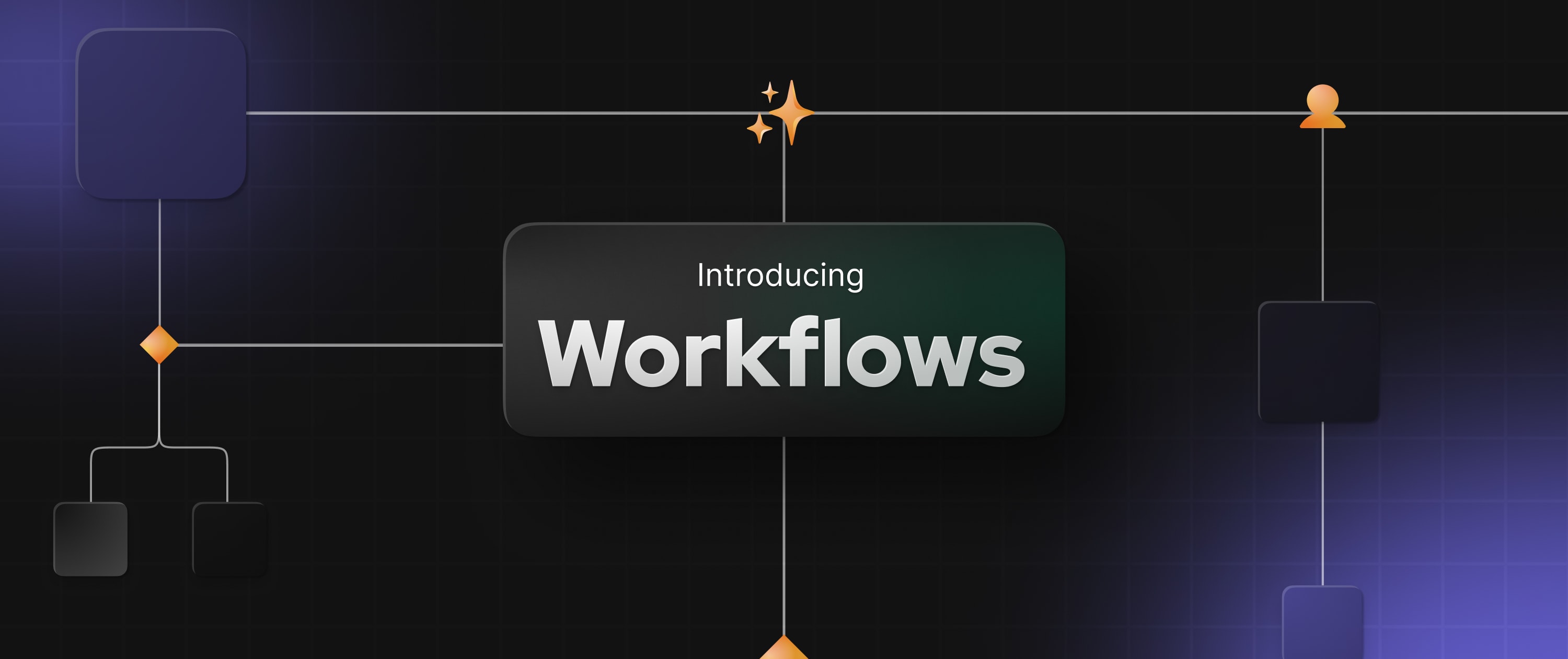Appsmith WORK Announcement: LLM Data Source, Postgres Database, Workflows Open Beta, and More!

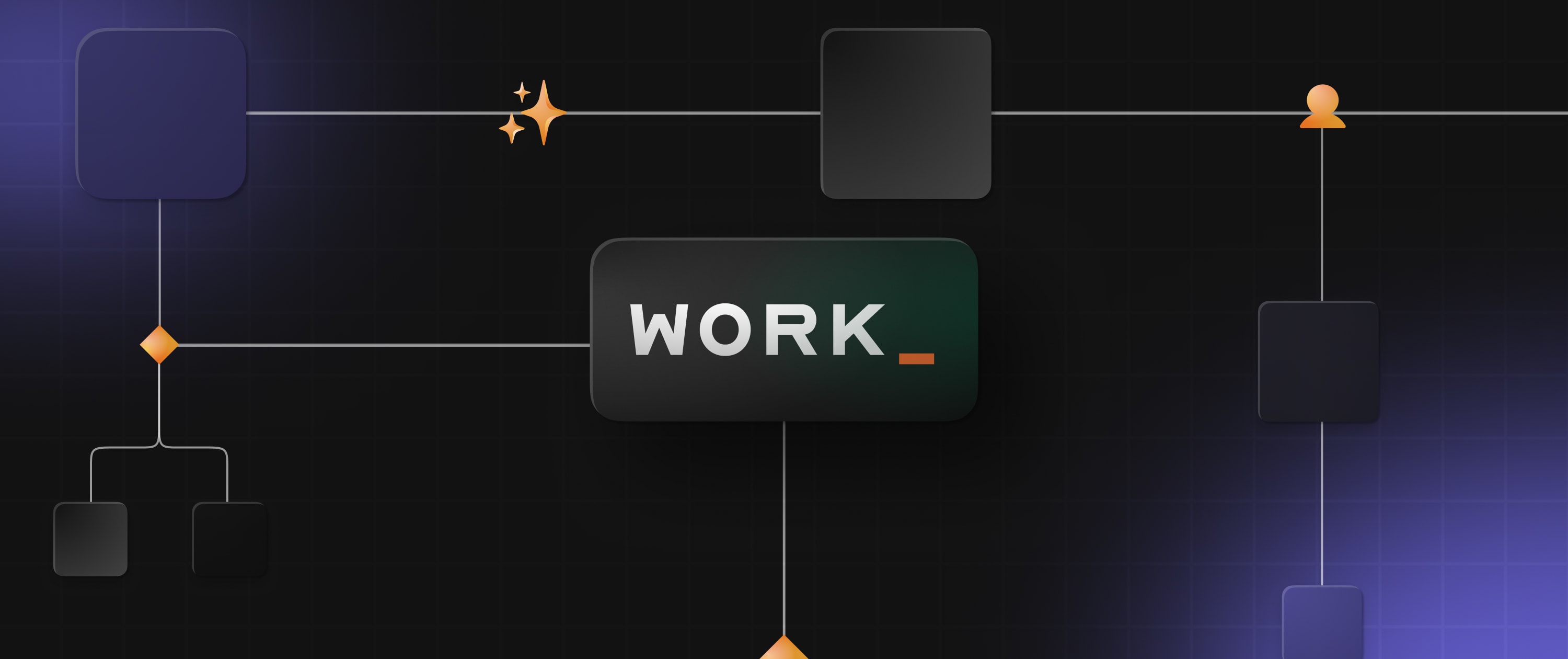
The next wave of AI applications is compelling businesses to change and adapt. Developers face the challenge of integrating AI capabilities into their existing workflows. At our recent Appsmith WORK event, we unveiled a series of groundbreaking updates designed to address these emerging needs and streamline the development process for AI-powered business applications. These updates are set to make it more accessible and efficient than ever for developers.
Requirements for the next wave of AI applications
The next wave of AI applications requires new data sources that interface with Large Language Models (LLMs), potentially replacing traditional relational databases as primary backends. User interactions are evolving from tabular to conversational in nature. Additionally, many existing applications will be upgraded with AI capabilities. We also anticipate the emergence of new applications designed to monitor, manage, and edit LLM responses.
Low-code platforms are becoming more relevant than ever because they simplify interactions with LLM data sources and enable the creation of custom UIs, such as chat-like functionalities. At Appsmith, we're focusing on helping teams build, deploy, and manage the next wave of AI-powered business software.
The following product updates and functionalities will help your business navigate this AI-driven transformation:
LLM data sources: bridging the gap between AI and your apps
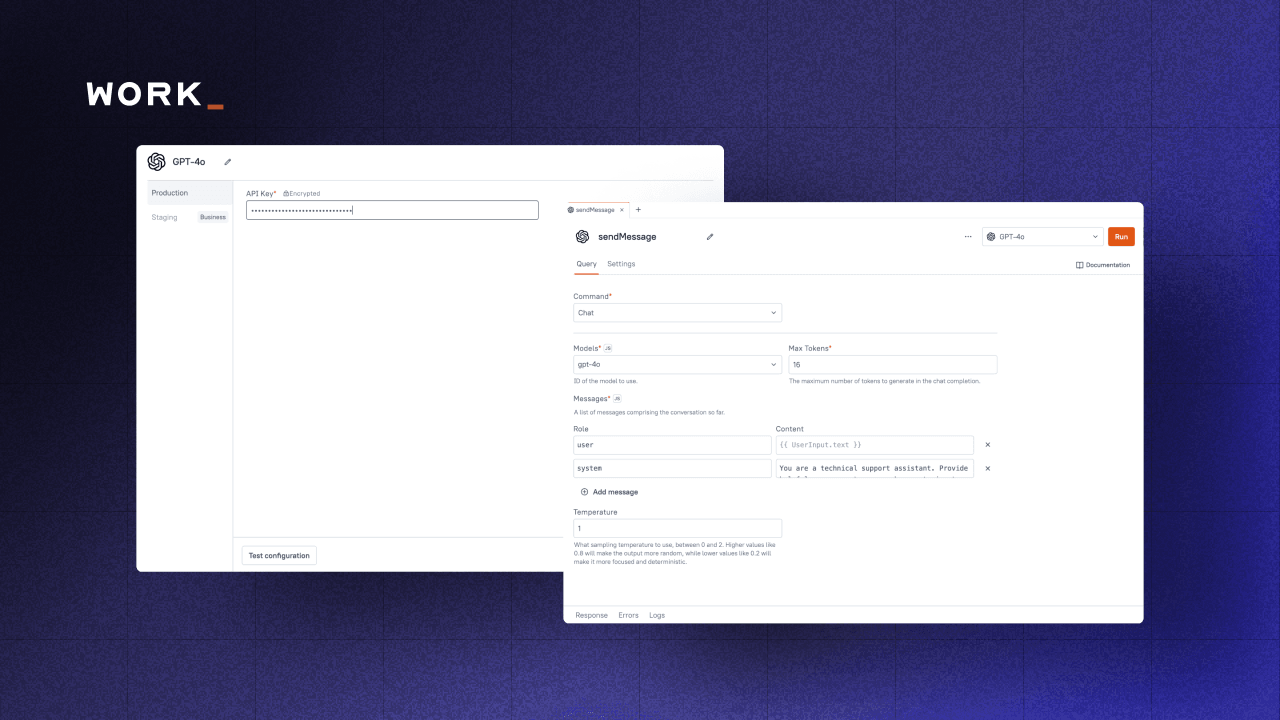
Developers frequently struggle with integrating LLMs into their applications while maintaining data security. That's why in Appsmith, we support both public and custom LLM models, allowing for full self-hosting of AI applications with end-to-end data security.
This enables seamless integration with popular LLMs like OpenAI, Gemini, and Anthropic, as well as the ability to self-host open-source LLMs alongside your applications. This flexibility ensures that developers can choose the most appropriate LLM for their specific use case while maintaining control over their data.
We've also significantly simplified the prototyping process for AI interactions by enabling RAG (Retrieval-Augmented Generation) out of the box. This means developers can quickly upload knowledge base articles to the AI data source and immediately start receiving contextual responses. This can help your team reduce the time and effort required to implement AI-powered features, allowing developers to focus on creating value for their users rather than complex integrations.
To help you get started, here is a comprehensive tutorial on building your own custom AI chatbot using Cohere.com. Here are some exciting possibilities you can explore:
Text classification on support tickets to extract issue details and customer sentiment
Summarizing email threads and drafting responses for human review/approval
Detecting fraudulent transactions based on previous account history
Creating AI support agents trained on your company policies and support documents
Integrated Postgres database: simplifying deployment and enhancing AI capabilities
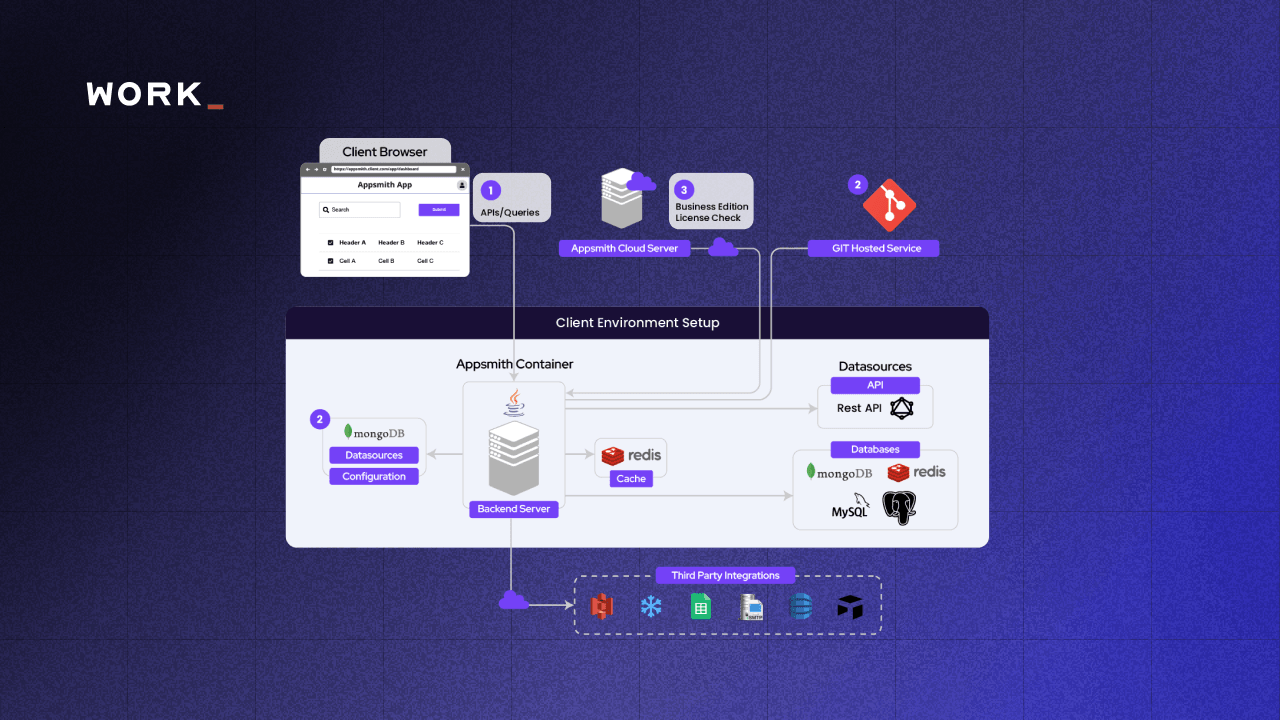
Deploying and managing separate databases for Appsmith instances can be time-consuming and resource-intensive. We want to simplify this process, and that is why we're replacing the default MongoDB requirement with an integrated Postgres database. This also simplifies your managed hosting options for an external database.
This change not only simplifies deployment but also doubles as a built-in vector store for AI applications, ensuring that your knowledge base is securely self-hosted alongside your Appsmith instance. This integration provides a powerful foundation for AI-driven applications, enabling developers to leverage advanced database features and AI capabilities within a single, cohesive environment.
Workflows open beta: enabling complex human-in-the-loop processes
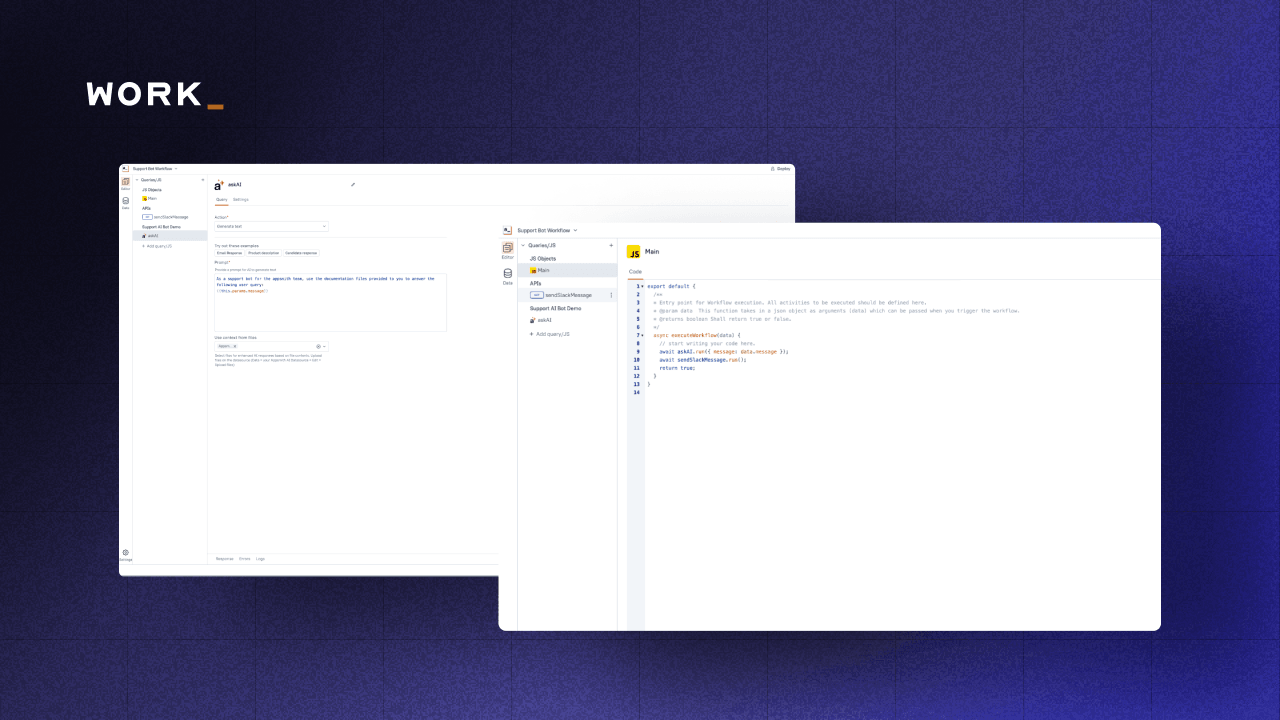
As businesses seek to incorporate human oversight into AI-driven processes, developers need robust tools to create flexible and scalable workflows. That's why this year we announced Appsmith workflows, a developer-focused platform for human-in-the-loop (HITL) workflows.
This feature, now in open beta for all business and enterprise users, allows developers to design complex, multi-step processes that seamlessly combine automated AI tasks with human decision-making points.
We've also added support for scheduled jobs, allowing developers to set up regular administrative tasks or reports without manual script management. This means that you can create long-running jobs that execute at specific times and can be completed over hours or even days.
This combination of flexibility and automation allows developers to create sophisticated AI-powered applications that can adapt to real-world business needs.
Automate complex, human in the loop processes
Start building with workflow automation designed for developers. Create secure end-to-end automated processes with easy integration setup, and code-first logic control.
Git performance improvements — coming soon
Large, complex applications can be challenging to sync with version control systems, often leading to frustration and delays in the development process. We've heard your feedback about Git performance, and we are making improvements to enhance developers' overall experience.
That's why we're launching a fully native GitHub integration that will allow GitHub users to sync Appsmith applications up to 60 times faster. This significant improvement in Git operations will enable smoother collaboration and version control for development teams working on extensive applications.
Appsmith WORK highlights
During the event, we showcased practical applications of these new features, demonstrating their impact in business applications:
Workflows in Appsmith: A comprehensive demonstration of the Appsmith workflows feature, including examples of API loop handling and a refund approval workflow. Joseph showcases how developers can quickly implement complex business logic with minimal code, leveraging both AI and human decision-making in a seamless process.
Funding Societies Builds AI Apps with Appsmith: Shawn Lim from Funding Societies shared valuable insights on their organization's generative AI initiatives and chatbot development.
To watch these sessions and more sessions around packages, the future of low-code applications and AI, and more, check out the recording of all the sessions here.
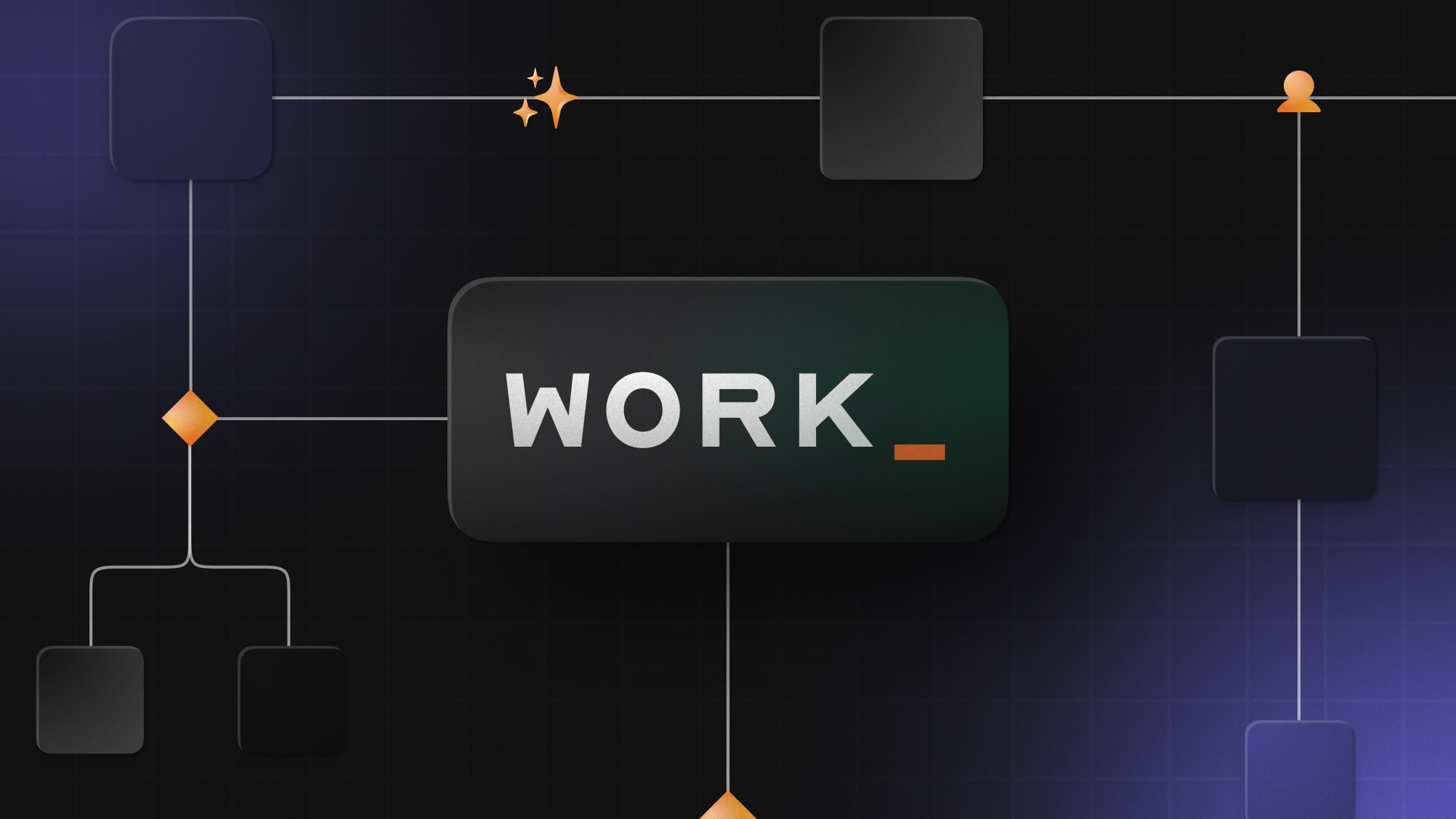
Appsmith is committed to enabling efficient AI-driven application development
At Appsmith, we're dedicated to helping teams build, deploy, and manage their custom business applications efficiently and effectively. Our latest features and updates are designed to enable developers in building AI-driven applications that adapt to the ever-changing needs of modern businesses.
We're committed to continuous improvement and value your input. Please share your thoughts, experiences, and suggestions about these new features through our Discord community. Your feedback is essential in helping us refine and enhance the Appsmith platform to better serve your business needs.
That's all for now, folks! Now go forth and build something amazing! ✌️
Related Blog Posts


